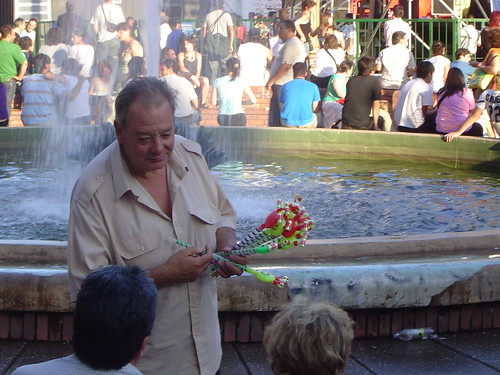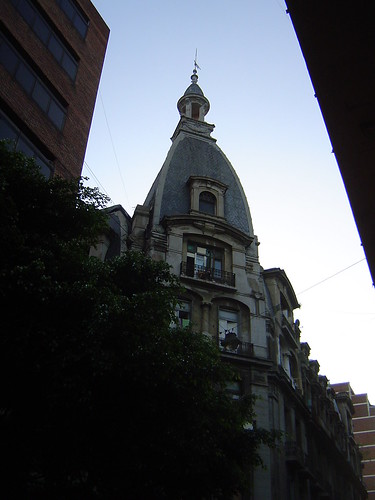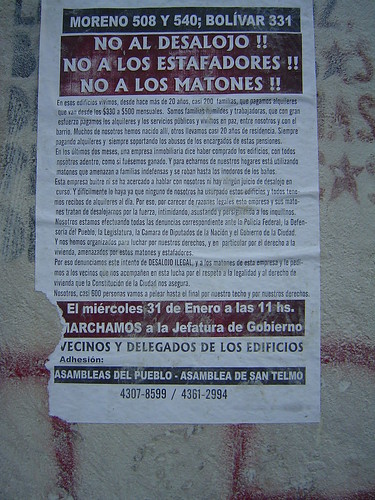You spend an early, warm summer evening relaxing to live music before a stage positioned in the center of Plaza de Mayo. A woman waits near the fountain for her boyfriend while youths, all ready for a concert, emerge from the subway.
Three policemen, one a sergeant, stop a young man selling the “Hecho de Buenos Aires” magazine. The boy is instructed to open his shoulder bag, drop the contents on the ground, then to empty his pockets. Next he has to lift up his shirt, turn around completely, demonstrating that there is nothing in his waistband. His demeanor is unconcerned, oddly calm, as if he does this routine everyday for the cops that line the edge of the plaza.
The police are satisfied. The young man picks up his bag, his magazines, and wades into the crowd to continue selling “Hecho de Buenos Aires”.
Another young man – perhaps a university student – taller, light brown hair, and bearded pulls out his wallet to buy a copy. Their conversation is jovial, laughing. The young seller of Hecho leans over to kiss the cheek of the bearded man, pats him on the back, and smiles.
The drummer flicks his wrists to rap out the notes, more than mere rhythm, that shows he is a better musician than the guitarist in the spotlight. Are not jazz players always the best drummers?
Beyond the crowd, the music drifts down the side streets. A couple stands on the balcony of their apartment below a majestic cupola. The man shirtless, the woman holding a cat. Their home is a grand building at the corner of Bolívar and Moreno, across from the Colegio Nacional. But the couple are poor, the building almost destroyed by decades of neglect.
It’s the end of the month and almost two hundred families are being turned out of the place where some had lived for twenty years, where some were born. Their rent ranges between $330 and $500 pesos a month, the price of living in squalor in Buenos Aires.


